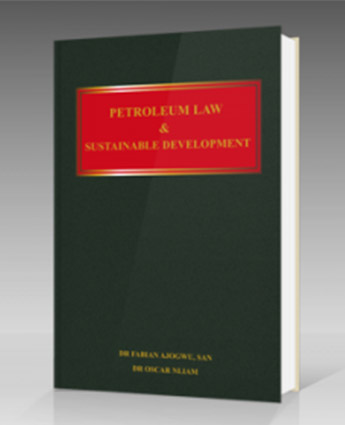The importance of the environmental issues has for the last three decades at least, been central to the development of the global oil and gas industry ,as we continue to witness the clash of perspectives between protagonists for and against the further development of the world’s still vast hydrocarbon resources. The global community is certainly heavily dependent on oil and gas supplies and will remain so for the foreseeable future. Indeed modern civilization remains significantly beholden to this resource and its countless derivatives.
The exploitations of hydrocarbons unfortunately also inevitably comes with an environmental toll: Oil spills, well blowouts, fires and consequent ecological damage to land, vegetation and to aquatic life from direct pollution through oil on land, in water or from flared associated gas. This is all apart from social dislocation within host communities and the social upheavels that have been caused by the industry. The challenge therefore has been with what the anti oil and gas development lobby, vocally highlights as the untold adverse ecological, economic and social impact of oil and gas exploration and production.
This book sets out a most balanced account of this challenge from the authors perspective and conviction of a need and alternate way to integrate the development of oil and gas with best environmental practices to ensure the sustainability of both. The authors have eloquently argued the case that an appropriate focus on sustainable development is the necessary and effective measure, to address the negative issues associated with oil and gas exploration and production. This is especially so, having regard to the serious environmental problems that made the Niger Delta a hotbed of resistance to oil and gas production, drawing also on the experiences and practices of other oil and gas provinces around the world.
“Petroleum Law and Sustainable Development” thus seeks to dissect this conflict from the point of view of sustainability – from fifty years ago when oil was first discovered in Nigeria with scant attention to any environmental impact assessment, through the increasing awareness of its deterious effect on host communities lives and livelihoods especially, to the authors advocated balanced recipe of embedding best environmental management practices within the activities involved in the exploration, production and evacuation of oil and gas to prevent or minimize any and all such adverse impacts.
The concept of sustainable development has been comprehensively dealt with by the authors Dr Fabian Ajogwu SAN and Dr Oscar Nliam who have carefully and clearly distilled the principles, theories, law and practice in the Nigerian oil and gas industry. They have also linked the relevance of each concept or principle to the industry and to international law and convention, while highlighting the other important sustainable development pillars. The authors state
emphatically that these are economic development and social cohesion and progress in addition to the more familiar environmental protection issues.
Finally the authors conclude with the trend typified by international conventions and treaties on the subject of oil and gas particularly, which now seem to point toward the notion of sustainability, just as domestic courts and local; dispute settlement mechanisms provide a corollary legal framework for the settlement of oil and gas exploration and production disputes in the Nigeria.
Dr. Ajogwu and Dr Nliam must also be applauded for their insightful analysis of the Nigerian Oil and Gas Industry Content Development Act of 2010 that examined the social and economic aspects of sustainability in the Nigerian oil and gas industry. “Petroleum Law and Sustainable Development” is especially commendable for its insightful recommendation for a paradigm shift to sustainable oil and gas exploration and production in Nigeria. There is no doubt that amongst the many obstacles that constitute, in the words of William C. Clark, “a powerful impediment to moving toward more sustainable development”, is “our ignorance about how to do so”.
This book has convincingly dealt with this powerful impediment by recommending measures through which the goal of sustainable oil and gas exploration and production could be realised in Nigeria. The discussion on the need for a paradigm shift for a sustainable oil and gas exploration and production is undoubtedly an outstanding contribution to the Nigerian oil and gas industry and entire country which has often struggled with negative economic, social and environmental impacts of the petroleum industry. With more than thirty combined years of experience of legal practice and research between the authors, it is not surprising to see that this book combines theory and practice in a seamless practical way as it offers solutions that will engender sustainability.
The learned authors, Dr Fabian Ajogwu SAN and Dr Oscar Nliam have produced a marvellous reference book for the oil and gas industry, government and regulators, judicial officers, legal practioners, academics, students, civil society groups, the media and all who wish to see the Nigerian oil and gas industry move in a more sustainable direction. I must commend the authors of an excellent book and for this critical addition to the body of literature in such an area of national importance.
H. Odein Ajumogobia San, Ofr, Llm (Harvard)


